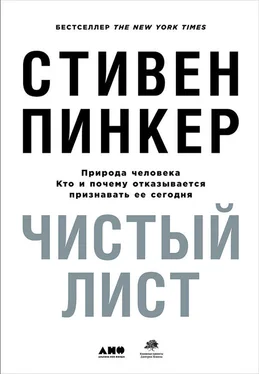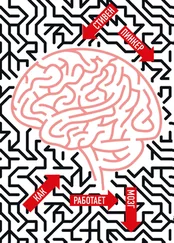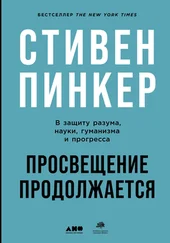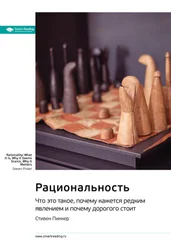Ridley, M. 2000. Genome: The autobiography of a species in 23 chapters. New York: HarperCollins.
Roback, J. 1993. Beyond equality. Georgetown Law Journal, 82, 121–133. Rogers, A. R. 1994. Evolution of time preference by natural selection. American Economic Review, 84, 460–481.
Roiphe, K. 1993. The morning after: Sex, fear, and feminism on campus. Boston: Little, Brown.
Romer, P. 1991. Increasing returns and new developments in the theory of growth. In W. Barnett, B. Cornet, C. d'Aspremont, J. Gabszewicz, & Mas-Collel (Eds.), International Symposium in Economic Theory and Econometrics. New York: Cambridge Unviersity Press.
Romer, P., & Nelson, R. R. 1996. Science, economic growth, and public policy. In B. L. R. Smith & C. E. Barfield (Eds.), Technology, R&D, and the economy. Washington, DC: Brookings Institution.
Rose, H., & Rose, S. (Eds.) 2000. Alas, poor Darwin! Arguments against evolutionary psychology. New York: Harmony Books.
Rose, S. 1978. Pre-Copernican sociobiology? New Scientist, 80, 45–46.
Rose, S. 1997. Lifelines: Biology beyond determinism. New York: Oxford University Press.
Rose, S., & the Dialectics of Biology Group. 1982. Against biological determinism. London: Allison & Busby.
Rosen, S. 1992. War power and the willingness to suffer. In J. A. Vasquez & M. T. Henehan (Eds.), The scientific study of peace and war: A text reader. New York: Lexington Books.
Rossen, M., Klima, E. S., Bellugi, U., Bihrle, A., & Jones, W. 1996. Interaction between language and cognition: Evidence from Williams syndrome. In J. H. Beitchman, N. J. Cohen, M. M. Konstantareas, & R. Tannock (Eds.), Language, learning, and behavior disorders: Developmental, biological, and clinical perspectives. New York: Cambridge University Press.
Rossiter, C. (Ed.) 1961. The Federalist Papers. New York: New American Library.
Rousseau, J.-J. 1755/1986. The first and second discourses together with the replies to critics and Essay on the origin of languages (Gourevitch, Victor, Trans.) 1st ed. New York: Perennial Library.
Rousseau, J.-J. 1755/1994. Discourse upon the origin and foundation of inequality among mankind. New York: Oxford University Press.
Rousseau, J.-J. 1762/1979. Emile (Allan Bloom, Trans.). New York: Basic Books. Rowe, D. 1994. The limits of family influence: Genes, experience, and behavior. New York: Guilford Press.
Rowe, D. C. 2001. The nurture assumption persists. American Psychologist, 56, 168–169.
Rozin, P. 1996. Towards a psychology of food and eating: From motivation to module to model to marker, morality, meaning, and metaphor. Current Directions in Psychological Science, 5, 18–24.
Rozin, P. 1997. Moralization. In A. Brandt & P. Rozin (Eds.), Morality and health. New York: Routledge.
Rozin, P., & Fallon, A. 1987. A perspective on disgust. Psychological Review, 94, 23–41.
Rozin, P., Markwith, M., & Stoess, C. 1997. Moralization and becoming a vegetarian: The transformation of preferences into values and the recruitment of disgust. Psychological Science, 8, 67–73.
Rue, L. 1994. By the grace of guile: The role of deception in natural history and human affairs. New York: Oxford University Press.
Rumelhart, D. E., & McClelland, J. L. 1986. PDP models and general issues in cognitive science. In D. E. Rumelhart, J. L. McClelland, & the PDP Research Group (Eds.), Parallel distributed processing: Explorations in the microstructure of cognition (Vol. 1: Foundations). Cambridge, Mass.: MIT Press.
Rumelhart, D. E., McClelland, J. L., & the PDP Research Group. 1986. Parallel distributed processing: Explorations in the microstructure of cognition (vol. 1: Foundations). Cambridge, Mass.: MIT Press.
Ruse, M. 1998. Taking Darwin seriously: A naturalistic approach to philosophy. Amherst, N. Y.: Prometheus Books.
Ruse, M. 2000. Can a Darwinian be a Christian? The relationship between science and religion. New York: Cambridge University Press.
Rushton, J. P. 1996. Race, intelligence, and the brain: The errors and omissions of the "revised" edition of S. J. Gould's The mismeasure of man. Personality and Individual Differences, 23, 169–180.
Rushton, J. P., Fulker, D. W., Neale, M. C., Nias, D. K. B., & Eysenck, H. J. 1986. Altruism and aggression: The heritability of individual differences. Journal of Personality and Social Psychology, 50, 1192–1198.
Rutter, M. 1997. Nature-nurture integration: The example of antisocial behavior. American Psychologist, 52, 390–398.
Ryle, G. 1949. The concept of mind. London: Penguin.
Sadato, N., Pascual-Leone, A., Grafman, J., Ibañez, V., Delber, M.-P., Dold, G., & Hallett, M. 1996. Activation of the primary visual cortex by Braille reading in blind subjects. Nature, 380, 526–528.
Sahlins, M. 1976. The use and abuse of biology: An anthropological critique of sociobiology. Ann Arbor: University of Michigan Press.
Salmon, C. A. 1998. The evocative nature of kin terminology in political rhetoric. Politics and the Life Sciences, 17, 51–57.
Salmon, C. A., & Symons, D. 2001. Warrior lovers. New Haven: Yale University Press.
Samelson, F. 1982. Intelligence and some of its testers (Review of S. J. Gould's "The Mismeasure of Man"). Science, 215, 656–657. Saperstein, A. M. 1995. War and chaos. American Scientist.
Sapolsky, R. M. 1997. The trouble with testosterone: And other essays on the biology of the human predicament. New York: Simon & Schuster.
Sayre-McCord, G. 1988. Essays on moral realism. Ithaca, N. Y.: Cornell University Press.
Scarr, S., & Carter-Saltzman. 1979. Twin method: Defense of a critical assumption. Behavior Genetics, 9, 527–542.
Scarr, S., & Weinberg, R. A. 1981. The transmission of authoritarian attitudes in families: Genetic resemblance in social-political attitudes? In S. Scarr (Ed.), Race, social class, and individual differences in IQ. Mahwah, N. J.: Erlbaum.
Scarry, E. 1999. Dreaming by the book. New York: Farrar Straus & Giroux.
Schaller, M., & Crandall, C. (Eds.) In press. The psychological foundations of culture. Mahwah, N. J.: Erlbaum.
Schellenberg, E. G., & Trehub, S. E. 1996. Natural musical intervals: Evidence from infant listeners. Psychological Science, 7, 272–277.
Schelling, T. 1960. The strategy of conflict. Cambridge, Mass.: Harvard University Press.
Schütze, Y. 1987. The good mother: The history of the normative model "mother- love." In P. A. Adler, P. Adler, & N. Mandell (Eds.), Sociological studies of child development (Vol. 2,). Greenwich, Conn.: JAI Press.
Schwartz, F. N. 1992. Breaking with tradition: Women and work, the new facts of life. New York: Warner Books.
Scott, J. C. 1998. Seeing like a state: How certain schemes to improve the human condition failed. New Haven: Yale University Press.
Searle, J. R. 1995. The construction of social reality. New York: Free Press.
Segal, N. 2000. Virtual twins: New findings on within-family environmental influences on intelligence. Journal of Educational Psychology, 92, 442–448.
Segerstråle, U. 2000. Defenders of the truth: The battle for sociobiology and beyond. New York: Oxford University Press.
Seligman, M. E. P. 1971. Phobias and preparedness. Behavior Therapy, 2, 307–320. Sen, A. 1984. Poverty and famines: An essay on entitlement and deprivation. New York: Oxford University Press.
Sen, A. 2000. East and West: The reach of reason. New York Review of Books. The Seville Statement on Violence. 1990. American Psychologist, 45, 1167–1168. Shalit, W. 1999. A return to modesty: Discovering the lost virtue. New York: Free Press.
Sharma, J., Angelucci, A., & Sur, M. 2000. Induction of visual orientation modules in auditory cortex. Nature, 404, 841–847.
Sharpe, G. 1994. William Hill's bizarre bets. London: Virgin Books.
Shastri, L. 1999. Advances in SHRUTI: A neurally motivated model of relational knowledge representation and rapid inference using temporal synchrony. Applied Intelligence, 11, 79–108.
Читать дальше
Конец ознакомительного отрывка
Купить книгу











